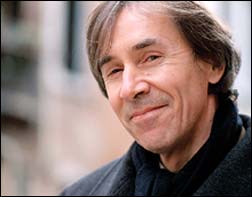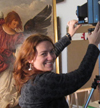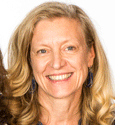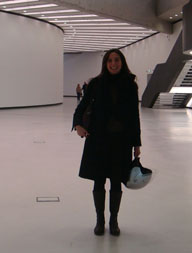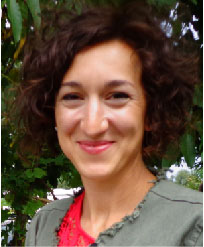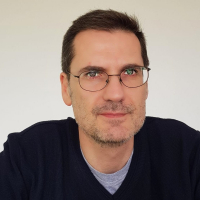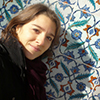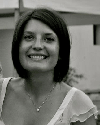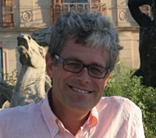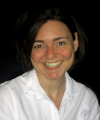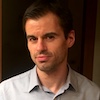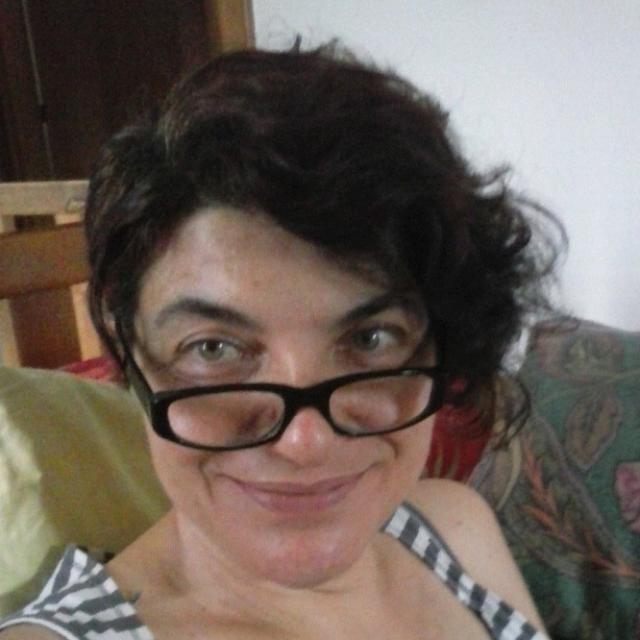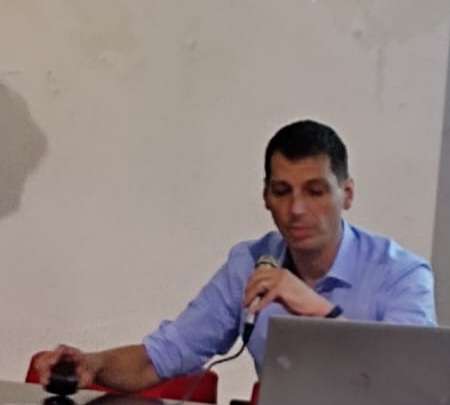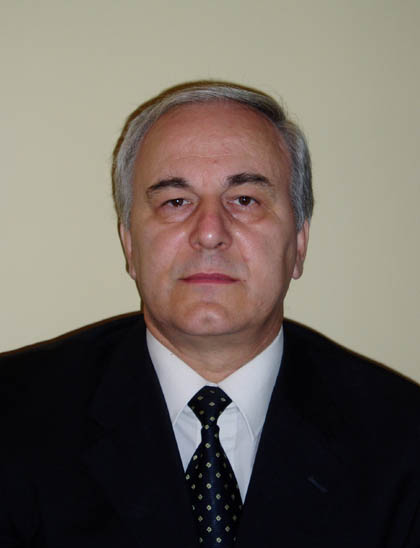Studiare
In questa sezione è possibile reperire le informazioni riguardanti l'organizzazione pratica del corso, lo svolgimento delle attività didattiche, le opportunità formative e i contatti utili durante tutto il percorso di studi, fino al conseguimento del titolo finale.
Calendario accademico
Il calendario accademico riporta le scadenze, gli adempimenti e i periodi rilevanti per la componente studentesca, personale docente e personale dell'Università. Sono inoltre indicate le festività e le chiusure ufficiali dell'Ateneo.
L’anno accademico inizia il 1° ottobre e termina il 30 settembre dell'anno successivo.
Calendario didattico
Il calendario didattico indica i periodi di svolgimento delle attività formative, di sessioni d'esami, di laurea e di chiusura per le festività.
| Periodo | Dal | Al |
|---|---|---|
| Sem. 1A | 25-set-2017 | 11-nov-2017 |
| Sem. 1B | 13-nov-2017 | 20-gen-2018 |
| Sem. 2A | 26-feb-2018 | 21-apr-2018 |
| Sem. 2B | 23-apr-2018 | 9-giu-2018 |
| Sessione | Dal | Al |
|---|---|---|
| Sessione d'esame invernale | 22-gen-2018 | 24-feb-2018 |
| Sessione d'esame estiva | 11-giu-2018 | 28-lug-2018 |
| Sessione d'esame autunnale | 27-ago-2018 | 22-set-2018 |
| Sessione | Dal | Al |
|---|---|---|
| Sessione estiva | 16-lug-2018 | 21-lug-2018 |
| Sessione autunnale | 12-nov-2018 | 17-nov-2018 |
| Sessione invernale | 1-apr-2019 | 6-apr-2019 |
| Periodo | Dal | Al |
|---|---|---|
| Festa di Ognissanti | 1-nov-2017 | 1-nov-2017 |
| Festa dell'Immacolata | 8-dic-2017 | 8-dic-2017 |
| Vacanze di Natale | 22-dic-2017 | 7-gen-2018 |
| Vacanze di Pasqua | 30-mar-2018 | 3-apr-2018 |
| Festa della liberazione | 25-apr-2018 | 25-apr-2018 |
| Festa del lavoro | 1-mag-2018 | 1-mag-2018 |
| Festa del Santo Patrono - S. Zeno | 21-mag-2018 | 21-mag-2018 |
| Festa della Repubblica | 2-giu-2018 | 2-giu-2018 |
| Vacanze Estive | 13-ago-2018 | 18-ago-2018 |
Calendario esami
Gli appelli d'esame sono gestiti dalla Unità Operativa Segreteria Corsi di Studio Culture e Civiltà.
Per consultazione e iscrizione agli appelli d'esame visita il sistema ESSE3.
Per problemi inerenti allo smarrimento della password di accesso ai servizi on-line si prega di rivolgersi al supporto informatico della Scuola o al servizio recupero credenziali
Per dubbi o domande leggi le risposte alle domande più frequenti F.A.Q. Iscrizione Esami
Docenti
 bernard.aikema@univr.it (per tutti), aikemaforstudents@gmail.com (per studenti)
bernard.aikema@univr.it (per tutti), aikemaforstudents@gmail.com (per studenti)
 +39 045802 8197
+39 045802 8197

Bassetti Massimiliano
 massimiliano.bassetti@univr.it
massimiliano.bassetti@univr.it
 045802 8376
045802 8376
 cristinabeltrami@gmail.com
cristinabeltrami@gmail.com
 maurizio.boscaini@univr.it
maurizio.boscaini@univr.it
 anita.casarotto@univr.it
anita.casarotto@univr.it
 stefania.cretella@univr.it
stefania.cretella@univr.it
 marco.dallavalle@univr.it
marco.dallavalle@univr.it
 vincenzo.giannotti@univr.it
vincenzo.giannotti@univr.it
 piergiovanna.grossi@univr.it
piergiovanna.grossi@univr.it
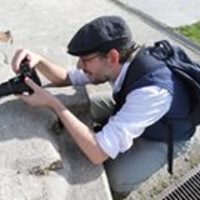
Guidarelli Gianmario
 gianmario.guidarelli@univr.it
gianmario.guidarelli@univr.it
 elisa.lerco@univr.it
elisa.lerco@univr.it
 francesco.lupi@univr.it
francesco.lupi@univr.it
 stefano.maltese@univr.it
stefano.maltese@univr.it

Mastrocinque Attilio
 attilio.mastrocinque@univr.it
attilio.mastrocinque@univr.it
 +39 045802 8386
+39 045802 8386
 marco.menato@univr.it
marco.menato@univr.it
 alberto.scandola@univr.it
alberto.scandola@univr.it
 carlo.vannini@accademiabelleartiverona.it
carlo.vannini@accademiabelleartiverona.it
 gianmaria.varanini@univr.it
gianmaria.varanini@univr.it
Piano Didattico
Il piano didattico è l'elenco degli insegnamenti e delle altre attività formative che devono essere sostenute nel corso della propria carriera universitaria.
Selezionare il piano didattico in base all'anno accademico di iscrizione.
1° Anno
| Insegnamenti | Crediti | TAF | SSD |
|---|
Un insegnamento a scelta2° Anno Attivato nell'A.A. 2018/2019
| Insegnamenti | Crediti | TAF | SSD |
|---|
Un insegnamento a sceltaDue insegnamenti a sceltaTre insegnamenti a scelta3° Anno Attivato nell'A.A. 2019/2020
| Insegnamenti | Crediti | TAF | SSD |
|---|
Un insegnamento a sceltaUn insegnamento a sceltaTre insegnamenti a scelta| Insegnamenti | Crediti | TAF | SSD |
|---|
Un insegnamento a scelta| Insegnamenti | Crediti | TAF | SSD |
|---|
Un insegnamento a sceltaDue insegnamenti a sceltaTre insegnamenti a scelta| Insegnamenti | Crediti | TAF | SSD |
|---|
Un insegnamento a sceltaUn insegnamento a sceltaTre insegnamenti a scelta| Insegnamenti | Crediti | TAF | SSD |
|---|
Legenda | Tipo Attività Formativa (TAF)
TAF (Tipologia Attività Formativa) Tutti gli insegnamenti e le attività sono classificate in diversi tipi di attività formativa, indicati da una lettera.
Storia dell'arte europea (i) (2019/2020)
Codice insegnamento
4S001435
Docente
Coordinatore
Crediti
6
Lingua di erogazione
Italiano
Settore Scientifico Disciplinare (SSD)
L-ART/02 - STORIA DELL'ARTE MODERNA
Periodo
Sem 2A dal 17-feb-2020 al 28-mar-2020.
Obiettivi formativi
Prerequisiti e propedeuticità:
Per poter seguire proficuamente il corso e sostenere l’esame è consigliato possedere conoscenze di base sulla storia e la geografia moderna.
Obiettivi formativi:
Lo studente deve essere in grado di acquisire gli elementi necessari per interpretare criticamente alcuni momenti chiave della storia dell'arte europea. Lo studente deve essere in grado di analizzare le opere d'arte collocandole nel corretto contesto storico, culturale e geografico, utilizzando un lessico adeguato alla materia. Dovrà essere in grado di leggere e utilizzare criticamente la bibliografia e i documenti messi a disposizione.
Programma
Il corso intende evidenziare i rapporti fra i principali centri artistici europei fra Quattro e Settecento, sulla base di quattro grandi temi: il Quattrocento fiammingo, l'Europa delle corti, il Seicento neerlandese, e le trasformazioni settecentesche. Fra gli artisti che verranno analizzati figurano Jan van Eyck, Antonello da Messina, Albrecht Durer, Raffaello, Parmigianino, Giulio Romano, Pieter Brueghel, Jan van Goyen, Jan Steen, G..B. Tiepolo, J.L. David, e molti altri.
I seguenti quattro temi verranno trattati ciascuno in tre o quattro lezioni:
1.Quattrocento fiammingo, la cosidetta "ars nova" di Jan van Eyck. Verra' dimostrato come il realismo di Jan van Eyck abbia condizionato in una maniera decisiva lo sviluppo dell'arte in Europa, dalla Germania alla Francia, alla Spagna, all'Italia.
2.L'Europa delle corti. Il classicismo raffaellesco diventa, fin dai primi anni del Cinquecento, il linguaggio preferito dell'arte internazionale delle corti principesche europee, dall'Italia alla Francia, fino alle corti asburgiche.
3.Il Seicento neerlandese. Un nuovo realismo e una nuova proliferazione di generi pittorici caratterizzano l'arte pittorica del Seicento europeo, che domina buona parte del mercato artistico sia a -Nord che al Sud delle Alpi.
4.Nuovi temi e nuovi rapporti con lo spettatore vengono proposti dalla meta' del Settecento, come verra' illustrato con alcuni esempi specifici.
Durante il corso saranno organizzate una o due uscite in citta' del Veneto.
Programma d'esame:
Bibliografia di riferimento:
- S. Nash, Northern Renaissance Art, Oxford History of Art, Oxford 2008, capp. 1-3, 9-12, 18
- C. Occhipinti, L'arte in Italia e in Europa nel secondo Cinquecento, Einaudi, Torino 2012, pp. 51-72, 73-83, 99
- M. Westermann, A wordly Art, The Dutch Republic 1585-1718, Londra 1996, introduzione e capp. 1-3
- H. Honour, Neoclassicismo, Einaudi, Torino 1993, introduzione e capp. 1-3
Verranno messe a disposizione degli studenti le fotocopie. Ulteriori indicazioni saranno fornite durante le lezioni.
Modalità d'esame
L'esame sarà orale, salvo casi straordinari in cui la consistente affluenza degli iscritti determini la necessità di svolgere un esame scritto.
Tipologia di Attività formativa D e F
| anni | Insegnamenti | TAF | Docente | |
|---|---|---|---|---|
| 3° | Storia dell'architettura medievale (i) | D |
Fabio Coden
(Coordinatore)
|
|
| 3° | Storia dell'arte europea (i) | D |
Bernard Jan Hendrik Aikema
(Coordinatore)
|
|
| 1° 2° 3° | Conferenze di Castelvecchio "Civici musei d'arte di Verona" | F |
Alessandra Zamperini
(Coordinatore)
|
|
| 1° 2° 3° | Conferenze "San Rocco" | F |
Alessandra Zamperini
(Coordinatore)
|
|
| 1° 2° 3° | Corso C.T.G. | F |
Alessandra Zamperini
(Coordinatore)
|
|
| 1° 2° 3° | Elaborazione grafica del materiale archeologico I | F |
Giuliana Maria Facchini
(Coordinatore)
|
|
| 1° 2° 3° | Karis - I ciclo | F |
Tiziana Franco
(Coordinatore)
|
|
| 1° 2° 3° | Laboratorio di archeologia sull'instrumentum domesticum | F |
Giuliana Maria Facchini
(Coordinatore)
|
|
| anni | Insegnamenti | TAF | Docente | |
|---|---|---|---|---|
| 1° | Scrivere una tesi | F |
Alessandro Arcangeli
(Coordinatore)
|
|
| 3° | Museologia (i) | D |
Valerio Terraroli
(Coordinatore)
|
|
| 1° 2° 3° | Conferenze di Castelvecchio "Civici musei d'arte di Verona" | F |
Alessandra Zamperini
(Coordinatore)
|
|
| 1° 2° 3° | Conferenze "San Rocco" | F |
Alessandra Zamperini
(Coordinatore)
|
|
| 1° 2° 3° | Corso C.T.G. | F |
Alessandra Zamperini
(Coordinatore)
|
|
| 1° 2° 3° | Elaborazione grafica del materiale archeologico I | F |
Giuliana Maria Facchini
(Coordinatore)
|
|
| 1° 2° 3° | Epigrafia della produzione e della distribuzione | F |
Alfredo Buonopane
(Coordinatore)
|
|
| 1° 2° 3° | Laboratorio di archeologia sull'instrumentum domesticum | F |
Giuliana Maria Facchini
(Coordinatore)
|
|
| 1° 2° 3° | Laboratorio di critica teatrale e musicale | F |
Simona Brunetti
(Coordinatore)
|
|
| 1° 2° 3° | Seminario cres | F |
Corrado Viola
(Coordinatore)
|
|
| anni | Insegnamenti | TAF | Docente | |
|---|---|---|---|---|
| 1° | Schedare l'effimero teatrale | F |
Simona Brunetti
(Coordinatore)
|
|
| 3° | Epigrafia latina (i) | D |
Alfredo Buonopane
(Coordinatore)
|
|
| 1° 2° 3° | Catalogazione del materiale archeologico | F |
Giuliana Maria Facchini
(Coordinatore)
|
|
| 1° 2° 3° | Conferenze di Castelvecchio "Civici musei d'arte di Verona" | F |
Alessandra Zamperini
(Coordinatore)
|
|
| 1° 2° 3° | Corso C.T.G. | F |
Alessandra Zamperini
(Coordinatore)
|
|
| 1° 2° 3° | Elaborazione grafica del materiale archeologico II | F |
Giuliana Maria Facchini
(Coordinatore)
|
|
| 1° 2° 3° | Laboratorio di archeologia medievale | F |
Elisa Lerco
(Coordinatore)
|
|
| 1° 2° 3° | Laboratorio di fotografia per i beni culturali | F |
Stefano Marziali
(Coordinatore)
|
|
| 1° 2° 3° | Laboratorio di storia della miniatura | F |
Marta Minazzato
(Coordinatore)
|
|
| 1° 2° 3° | Leggere il medioevo. Autori, incontri, discussioni | F |
Tiziana Franco
(Coordinatore)
|
|
| anni | Insegnamenti | TAF | Docente |
|---|---|---|---|
| 1° | Scavo archeologico dell'area nord della Civita di Tarquinia | F |
Attilio Mastrocinque
(Coordinatore)
|
| 1° | Scavo archeologico di Aquileia | F |
Patrizia Basso
(Coordinatore)
|
| 1° | Scavo archeologico di Gazzo Veronese | F |
Patrizia Basso
(Coordinatore)
|
| 1° | Scavo archeologico di Leno | F |
Fabio Saggioro
(Coordinatore)
|
| 1° | Scavo archeologico di Piuro | F |
Fabio Saggioro
(Coordinatore)
|
Prospettive
Avvisi degli insegnamenti e del corso di studio
Per la comunità studentesca
Se sei già iscritta/o a un corso di studio, puoi consultare tutti gli avvisi relativi al tuo corso di studi nella tua area riservata MyUnivr.
In questo portale potrai visualizzare informazioni, risorse e servizi utili che riguardano la tua carriera universitaria (libretto online, gestione della carriera Esse3, corsi e-learning, email istituzionale, modulistica di segreteria, procedure amministrative, ecc.).
Entra in MyUnivr con le tue credenziali GIA: solo così potrai ricevere notifica di tutti gli avvisi dei tuoi docenti e della tua segreteria via mail e a breve anche tramite l'app Univr.
Prova finale
La prova finale per il conseguimento del titolo consiste nella discussione di un elaborato scritto, di circa 30 cartelle di 2500 battute, su un argomento concordato con il relatore. Alla prova finale sono riservati 6 CFU.
L’elaborato scritto verrà caricato on line dal candidato e dovrà essere approvato dal relatore prima della sua discussione.
Le discussioni dell’elaborato finale avvengono davanti a sottocommissioni di almeno tre membri, dei quali uno sarà il relatore, uno il correlatore, il terzo un altro docente dell’Ateneo oppure un esperto esterno nominato dal Presidente del Collegio didattico. La discussione si svolgerà nei giorni precedenti la proclamazione in data concordata dai componenti la sottocommissione. Il risultato della discussione e la proposta di valutazione saranno tempestivamente comunicati dal Presidente della sottocommissione al Presidente della Commissione per la prova finale.
La Commissione per la prova finale procederà alla valutazione, tenendo conto della proposta delle sottocommissioni, alla proclamazione e alla comunicazione del voto di laurea. La verbalizzazione, da compilarsi secondo la procedura denominata “firma digitale”, sarà responsabilità del Presidente della Commissione.
La decisione di voto avviene senza la presenza dello studente o di estranei. La Commissione dispone di centodieci punti; il voto minimo per il superamento dell’esame è di 66/110. Alla prova finale è attribuito il punteggio massimo di cinque/110.
Il Collegio didattico incentiva il compimento degli studi nella durata normale del corso (ovvero nella durata concordata, per gli studenti a tempo parziale), assegnando 1 punto su 110 aggiuntivo a chi si laurei nelle sessioni dell’ultimo anno di corso. Ai soli effetti di questa incentivazione, agli studenti che abbiano trascorso un periodo di studio all’estero nel quadro degli scambi promossi dall’Ateneo, la durata del corso di studi normale è incrementata della durata del periodo trascorso all’estero. Se uno studente ha speso all’estero un periodo di studio entro il quadro di un accordo Erasmus, viene aggiunto 1 punto su 110 alla media pesata.
Quando il candidato abbia ottenuto il massimo dei voti, può essere concessa la lode, purché con decisione unanime.
L’elaborato scritto, oggetto della prova finale, può essere redatto in lingua diversa dall’italiano, previa approvazione del relatore e del Collegio didattico. La discussione deve comunque essere condotta in italiano.
La discussione dell’elaborato in sede di prova finale può eventualmente essere accompagnata dall'uso di strumenti informatici o di altro genere, se essi sono utili per un migliore chiarimento dei contenuti o per l'esposizione delle metodologie impiegate.
Lo studente può ritirarsi dall’esame finale fino al momento di essere congedato dal Presidente della Commissione per dare corso alla decisione di voto.
La commissione, constatato il valore insufficiente dell’elaborato, lo può ricusare. Nel caso in cui lo studente non consegua il punteggio minimo per superare la prova finale, dovrà migliorare l'elaborato o comporne uno diverso, presentandosi ad una successiva sessione di laurea.
Per gli studenti del CdL in Beni culturali, l'Esame di laurea si svolge in due momenti distinti:
- la discussione dell’elaborato finale, durante le due settimane precedenti la proclamazione;
- la proclamazione di laurea, in un giorno del periodo previsto dal calendario didattico per l'Esame di laurea.
N.B. Può essere relatore di elaborati per il conseguimento del titolo ogni docente che faccia parte del Collegio didattico di Beni culturali, Lettere e Tradizione e interpretazione dei testi letterari, purché lo studente abbia superato durante il corso di studio un esame in una disciplina del settore scientifico-disciplinare di afferenza del docente stesso.
Adempimenti amministrativi e scadenze domanda di laurea
Calendari discussione e proclamazione di laurea
Elenco delle proposte di tesi e stage
| Proposte di tesi | Area di ricerca |
|---|---|
| Ambiti di tesi | Art & Architecture - Art & Architecture |
| Stage | Area di ricerca |
|---|---|
| Lavorare in archivio | Argomenti vari |
